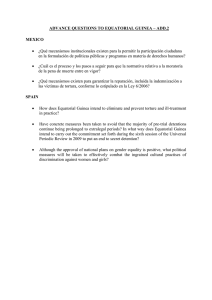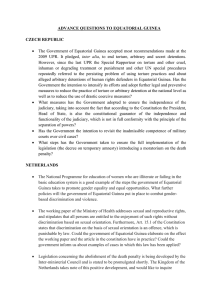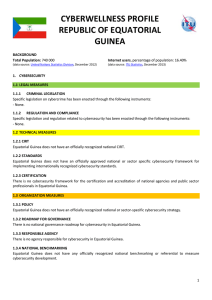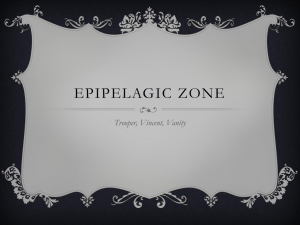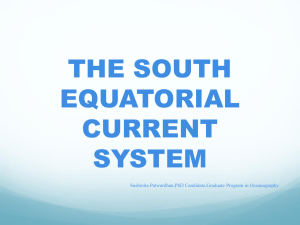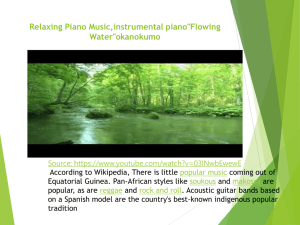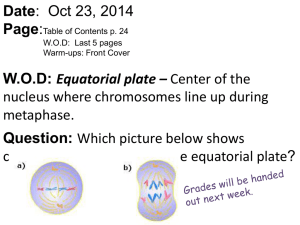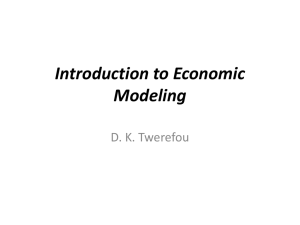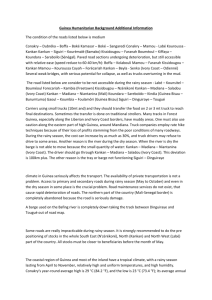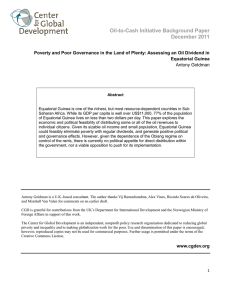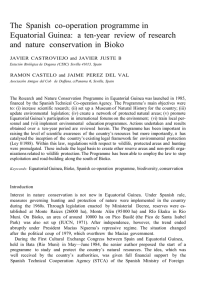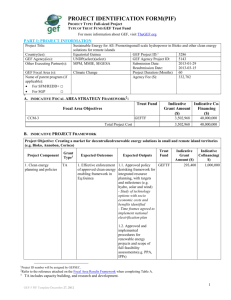Ramon Esono Ebale and Equatorial Guinea
advertisement
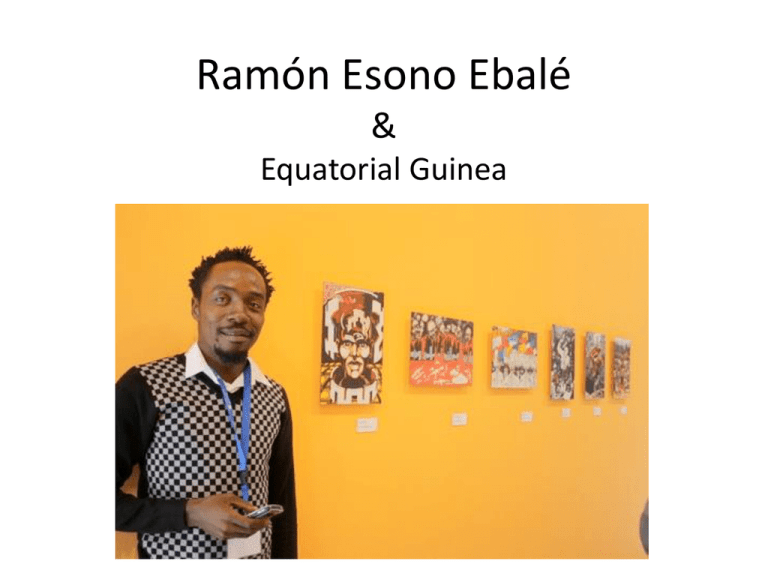
Ramón Esono Ebalé & Equatorial Guinea Malabo, capital of Equatorial Guinea A Brief History of Equatorial Guinea • 1472: Island of Bioko discovered by Portuguese explorer Fernão do Pó • 1474: Islands of Bioko and Annobón colonized by Portugal • 1778: Islands and adjacent islets were ceded to Spain, along with commercial rights to the mainland • 1900: Mainland portion, Rio Muni, became a Spanish colony • 1926-1959: Mainland territories unified as Spanish Guinea • 1968: Independence from Spanish rule Languages & Culture • The official languages of the country are Spanish, French, and Portuguese • Other languages include Fang and Bubi • Ethnic groups are Fang, Bubi, Mdowe, Annobon, and Buieba • The most practiced religion is Christianity, with the majority being Roman Catholic History of the Government • 1968: Francisco Macias Nguema becomes the first elected president of Equatorial Guinea • 1972: Macias Nguema created a single-party state and made himself president for life • His rule was a reign of terror, during which a third of the population was either killed or fled the country • 1979: He was tried and executed after he was deposed by his nephew and current president, Teodoro Obiang Current Government • The current president, Teodoro Obiang, has extensive powers • While the country is officially a multiparty democracy, elections are considered a sham • Equatorial Guinea is considered to be among the top 12 most corrupt states in the world Economy • Oil reserves were found in 1996 • The country is one of the richest in Africa, but wealth is unevenly distributed among the population • President Obiang’s family has gotten richer at the expense of the people Urbanization • About 40% of the population lives in urban areas and increasing yearly by 5% • To make way for roads and buildings, families have been evicted and left homeless • While urban areas have increased, not very many people benefit from them Health & Sanitation • The country lacks widespread access to potable tap water • The United Nations reports that 20% of children die before reaching the age of five Human Rights • Equatorial Guinea is one of the world’s worst violators of human rights, among the "worst of the worst" in annual surveys • Human rights abuses by the government continue, even after President Obiang signed an anti-torture decree in 2006 Human Trafficking • Human trafficking: the sale, transport, and profiting from people forced into service (military, labor, and/or sexual exploitation) • Women and children are trafficked to Equatorial Guinea from nearby countries • The government is not doing anything to protect victims of human trafficking or to eliminate trafficking Bio: Ramón Esono Ebalé • • • • b. 1977 Self-taught artist from Equatorial Guinea Currently lives in exile in Paraguay Graphic novelist and Comic artist Critiquing the Government Much of Esono Ebalé’s work critiques government corruption/ dictatorship, human rights violations, and efforts to oppress freedom of expression in his home country of Equatorial Guinea. Jamón y Queso (Ham and Cheese) http://www.jamonyqueso.info/ Art Educator • In addition to being an artist, Esono Ebalé is an art educator and currently teaches in Paraguay. La Pesadilla de Obi (Obi’s Nightmare), 2013 [graphic novel ] Bozales (Muzzles), series, 2011 Votez…Encore et Encore (Vote…Again and Again), comic, 2005-06 Dictadores (Dictators), series (2009) EG Justice: Toward a Just Equatorial Guinea http://www.egjustice.org/
